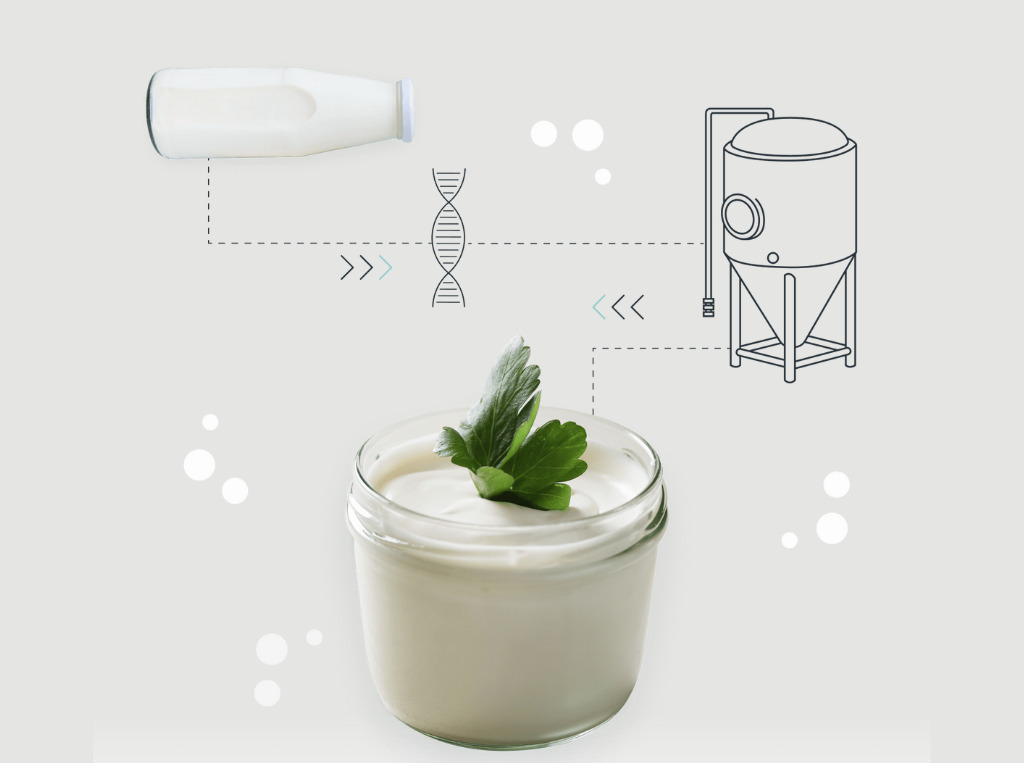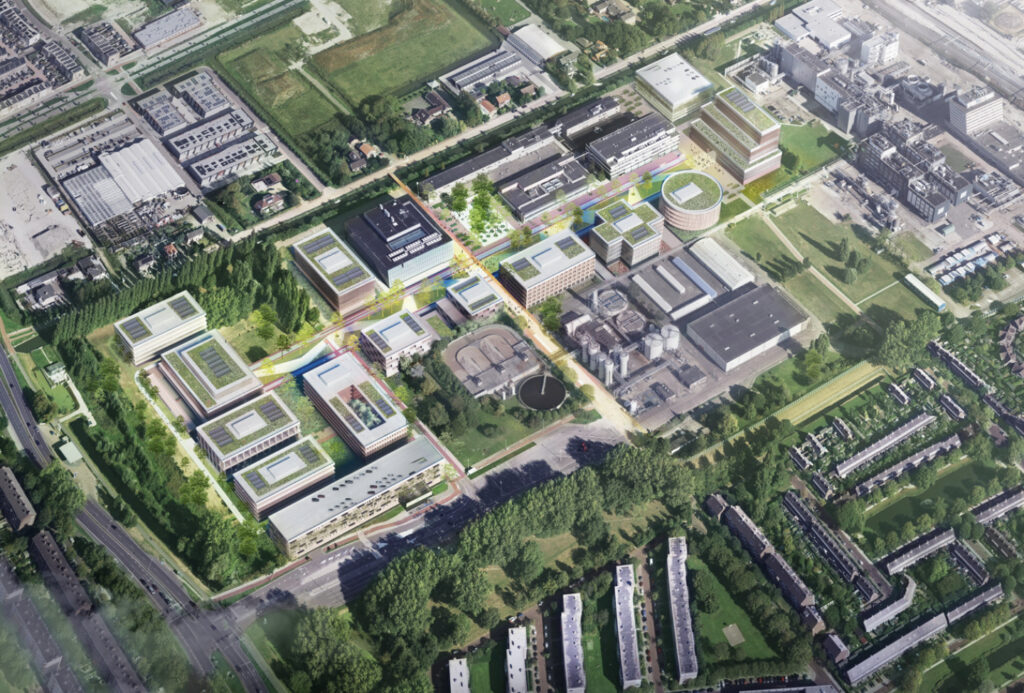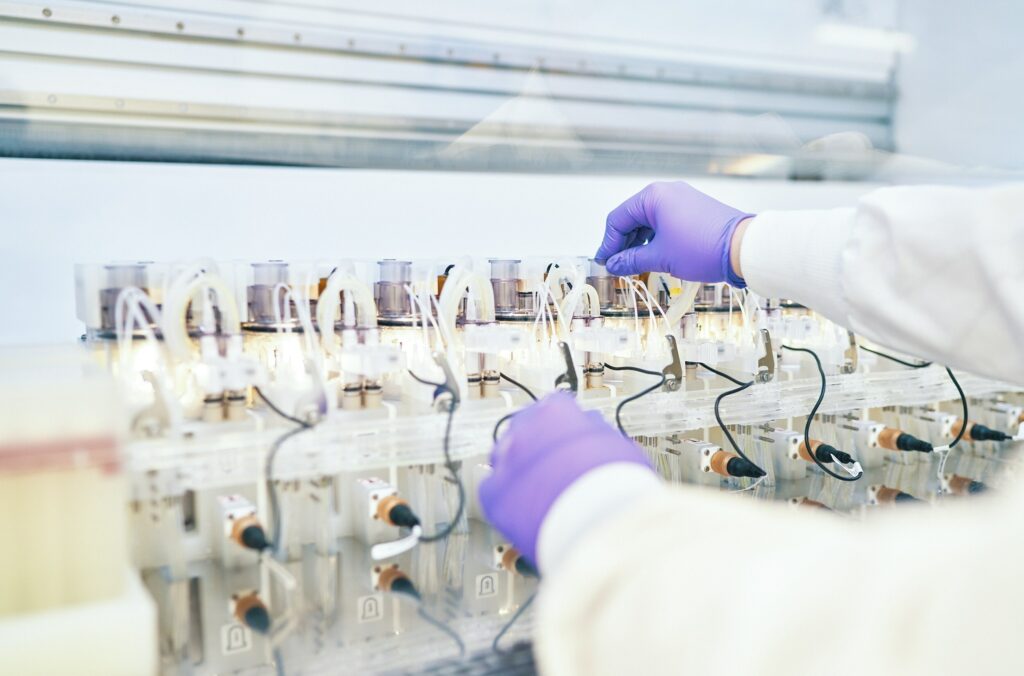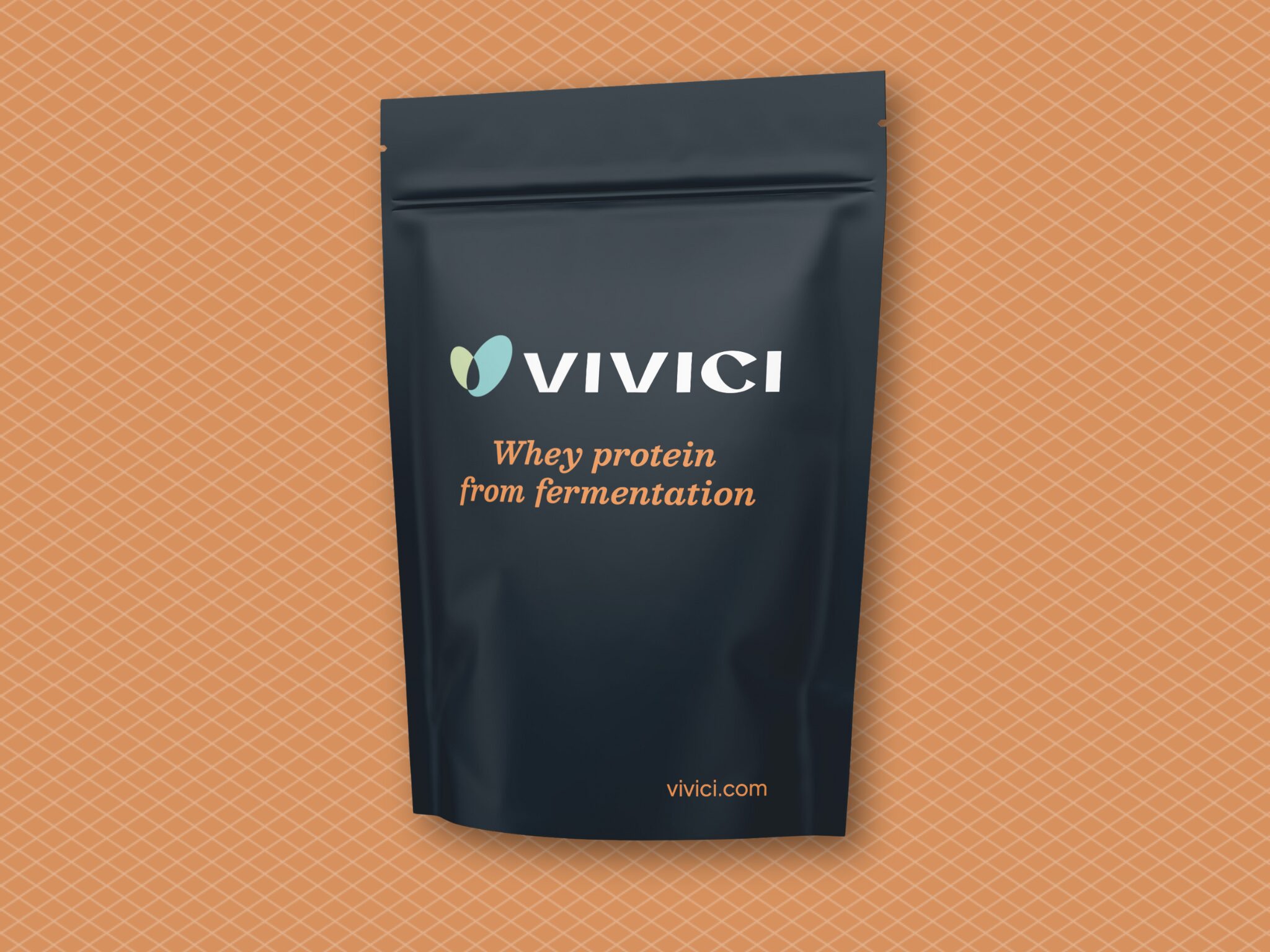Precision Fermentation Startup Vivici Earns Self-Affirmed GRAS Status to Sell Animal-Free Whey in the US
7 Mins Read
Regulatory compliance for precision fermentation is speeding up in the US, with Vivici the latest to achieve self-affirmed GRAS status for its animal-free whey protein. The first products containing Vivici’s beta-lactoglobulin are set to launch later this year.
Dutch ingredients company Vivici has made good on its promise of regulatory compliance after obtaining self-affirmed GRAS certification for its animal-free beta-lactoglobulin in the US, making it the first European startup to do so for precision-fermented dairy proteins.
This allows the business to commercialise its whey protein for its B2B customers, becoming just the sixth producer allowed to sell animal-free dairy proteins in the US. The startup is in the process of submitting a dossier to the FDA. It will also file for approval in the EU and Singapore in the coming months.
Vivici CEO Stephan van Sint Fiet told Green Queen that the company’s plans for 2024 are twofold: being a “partner of choice” to customers by supporting them with product development and a stable supply of its sustainable protein, and raising funds via a Series A round to “make precision fermentation a commercial reality” (it closed a seed round for an undisclosed sum in August).
Outperforming conventional whey protein

Vivici began as a joint venture between food industry giants DSM-Firmenich Venturing and Fonterra in 2022 to accelerate the commercialisation of fermentation-derived dairy ingredients. It leverages decades of experience and knowledge, and intellectual property created by years of collaboration between the two corporations (which have filed patents for the same). Now, it’s set to launch its first whey protein.
Beta-lactoglobulin constitutes about 65% of all whey proteins found in dairy, with properties like gelling, foaming and emulsification that enhance mouthfeel and texture in food and drink applications. It’s also the protein chosen by most other precision fermentation dairy startups, including Californian pioneer Perfect Day, Remilk and Imagindairy, all of which have received a ‘no further questions’ letter from the FDA.
Vivici claims its beta-lactoglobulin contains all the essential amino acids required by the human body, and can be rapidly absorbed in the blood plasma. Plus, it’s abundant in leucine and other branched-chain amino acids (BCAAs). Estimates suggest that leucine makes up 14.5% of beta-lactoglobulin, while total BCAA concentration in this whey protein has been found to be at 25%.
Vivici’s animal-free version, however, has 16% leucine and 29% BCAAs, which play a crucial role in protein synthesis and energy production, and are the only amino acids that don’t degrade in the liver. “Nutritionally, Vivici’s beta-lactoglobulin isolate is superior to plant protein isolates, even outperforming whey protein isolates in specific applications because it’s higher in the amino acids beneficial for muscle growth and recovery,” said CTO Marcel Wubbolts.
The company says its protein – which is clear in colour and neutral in flavour – does not compromise on “taste, performance or nutrition”, and can be used in applications like ready-to-mix protein powders, ready-to-drink protein beverages and protein bars.
Vivici to seek vegan certification for precision fermentation whey

“Vivici’s whey protein from fermentation can add value to a wide range of products, suitable for many consumers including those following a vegan diet,” said van Sint Fiet. Last week, Singapore startup TurtleTree – which has obtained self-affirmed GRAS status for its precision-fermented lactoferrin – became the first company in the industry to earn a vegan certification.
While TurtleTree’s protein – like Vivici’s – is free from lactose (which many consumers are intolerant to), for people who are allergic to dairy proteins themselves, vegan labels on products using animal-free proteins could cause added confusion, since dairy allergies can have serious consequences. This is why all startups may not want to go down that path, according to Irina Gerry, chief marketing officer of US-Australian precision fermentation player Change Foods and vice chair of the board of directors at industry association Precision Fermentation Alliance.
“Given that to date, consumers tend to understand ‘vegan’ as ‘plant-based’, and therefore not expect to encounter a milk allergen, labelling milk protein made via fermentation as vegan could lead to confusion around allergenicity,” she told Green Queen. As for who should apply for these certifications, she said it depended “on the company, the specific molecule, and the target consumer”.
“Vegan certifications will allow us to communicate to the vegan community that our ingredient is vegan-friendly and suitable for their diet,” said van Sint Fiet. “We believe Vivici’s whey protein from fermentation meets these requirements, and we will be working with the vegan certification bodies on this.”
Tackling dairy’s big climate footprint

Headquartered at the Biotech Campus Delft, Vivici has a dairy protein application lab in the Food Valley at NIZO food research, utilising the scale-up facilities and investment climate offered by the Netherlands. The company has now successfully scaled up from lab to commercial-scale production, with a successful tech transfer to a fermenter with a capacity of 120 cubic metres. “We will be working with partners in Europe and the US on commercial manufacturing,” said van Sint Fiet.
As a B2B operator, it will not bring its own consumer products to market, but already has development projects underway with other businesses, which will see products containing its beta-lactoglobulin make their debut later this year. The startup partnered with Gingko Bioworks in October to extend its range of dairy proteins. “We are on track to bring our second whey protein to market in late 2025,” revealed the CEO.
One of Vivici’s parent corporations is also the world’s largest dairy producer. In fact, Fonterra is New Zealand’s biggest company overall too, responsible for about 30% of global dairy exports. But it is the country’s worst polluter too, emitting 12.8M tonnes of greenhouse gases in the year ending June 30, 2023. The dairy giant has committed to slashing its emissions footprint from dairy by 30% by the end of the decade, but is currently facing a trial as part of a climate case by a Māori leader against a group of dairy and fossil fuel operators.
Its partnership with DSM, whose proprietary technology reduces methane, to found Vivici would help in that aspect. An independent life-cycle assessment (LCA) of Perfect Day’s beta-lactoglobulin has found that the protein emits 91-97% fewer emissions, requires 29-60% less energy, and consumes 96-99% less water than conventional dairy. Similarly, France’s Bon Vivant found that its animal-free beta-lactoglobulin emits 96% less carbon, needs 99% less water, and uses 92% less land.
New Zealand-based Daisy Lab is another company working on precision-fermented beta-lactoglobulin, which is a $27M market. The fermentation-derived protein category, meanwhile, has secured nearly $4B in total investment. And in March last year, a survey by Perfect Day, Cargill and the Hartman Group found that 77% of US adults are willing to try precision fermentation products once they understand its benefits.
Why Vivici is opting for FDA notification

Vivici’s self-affirmed GRAS certification comes a week after New Culture’s, which made the latter the only company achieving the feat for casein proteins. Like New Culture, Vivici has confirmed it will notify the FDA of its self-affirmed status to receive a ‘no further questions’ letter.
This is because the GRAS notification process is much more rigorous and mandates the submission of a host of comments, including both positive and negative reviews and studies of a producer’s ingredients. Self-affirmed GRAS certification doesn’t legally require FDA review – instead, businesses only need to conduct a safety approval by a scientific panel, which can include both internal and external experts. This can be done without disclosing safety data publicly, which helps maintain confidentiality around proprietary information and trade secrets.
It’s an easier and cheaper way to commercialise, as well as being much faster, given full FDA approval can take between six months to a year. But it does mean companies are making their own safety assessments independently from the FDA (while complying with its requirements). By submitting a dossier to the FDA, businesses receive a ‘no further questions’ letter when they get the all-clear. This is viewed as a more transparent process with publicly available data and breeds consumer trust.
“We expect a ‘no questions’ letter within the year,” confirmed van Sint Fiet. “We want to work closely with all innovative food and beverage players in the market who believe their brand could benefit from a more sustainably produced and ethically sourced, yet highly functional protein ingredient.”



